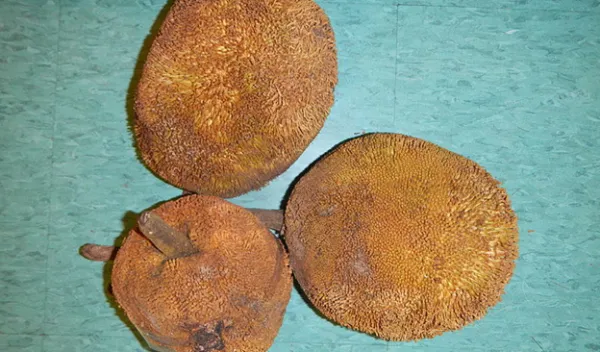
Indigenous Borneans knew a tree was two distinct species. Genetic analysis confirms they were right.
More than 200 years ago, a Spanish botanist described Artocarpus odoratissimus, a species of fruit-bearing tree found in Borneo and the Philippines. The Iban people, who are indigenous to Borneo, know the tree to have two different varieties, which they call lumok and pingan, distinguished by their fruit size and shape.
Despite this knowledge, Western botanists have long considered the tree as a single species, but a genetic analysis, published in the journal Current Biology and supported by the U.S. National Science Foundation, confirms that the Iban people were right all along.
"This study benefitted from invaluable and irreplaceable indigenous knowledge," says Christopher Schneider, a program director in NSF's Division of Environmental Biology. "Too few past studies have acknowledged similar contributions. This team's inclusive approach is laudable."
To determine the correct taxonomy of the tree, which is in the same genus as the trees that produce the meaty jackfruit, scientists took DNA samples from trees in Malaysian Borneo and from historical herbarium specimens.
They employed phylogenetic analyses and DNA microsatellites to show that while lumok and pingan are closely related, they are genetically distinct species. The scientists recommend the trees be renamed to reflect this result, and suggest that it's time to consider incorporating Indigenous names into taxonomic research.
"While the scientific endeavor has long benefitted from Indigenous knowledge, it has usually not engaged with it on equal footing," write the authors, which include Malaysian scientists and Iban field botanists, led by Elliot Gardner, a botanist at Florida International University. "While Linnaean taxonomy offers a broad framework for global comparisons, it may lack the detailed local insights possessed by Indigenous peoples."
"Time is of the essence," say Gardner and colleagues, "because just as biodiversity is under threat from climate change, Indigenous knowledge is threatened by societal change."
